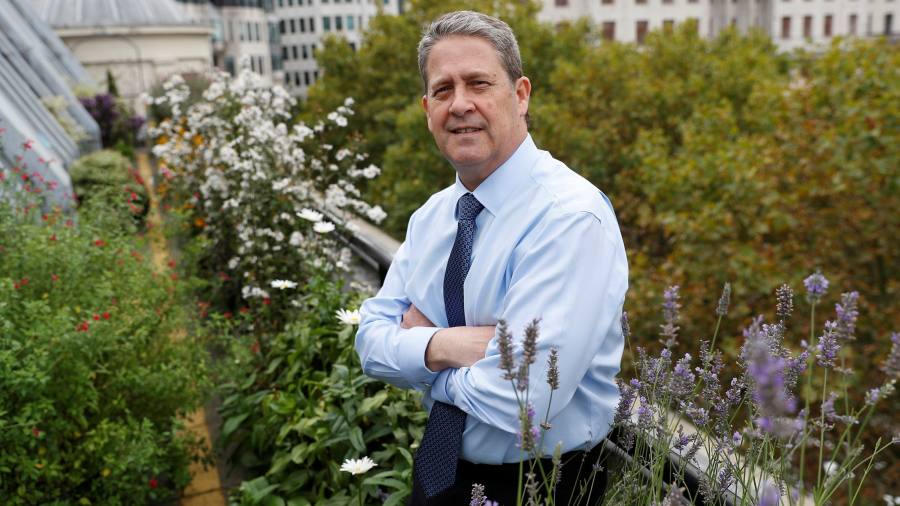Receive free Coutts & Co updates
We’ll send you a myFT Daily Digest email rounding up the latest Coutts & Co news every morning.
Coutts chief executive Peter Flavel has stepped down, saying that he bore “ultimate” responsibility for the bank’s treatment of former UK Independence party leader Nigel Farage.
The private bank and its owner, NatWest, have been engulfed in a crisis since Farage revealed last week that Coutts had closed his account in part because of his political views.
“In the handling of Mr Farage’s case we have fallen below the bank’s high standards of personal service,” Flavel said in a statement on Thursday. “As CEO of Coutts it is right that I bear ultimate responsibility for this, which is why I am stepping down.”
The revelation prompted a furious political backlash and this week cost NatWest chief executive Dame Alison Rose her job after she admitted to inaccurately briefing a BBC journalist over why Farage’s account was closed.
A 40-page dossier prepared by Coutts’ wealth reputational risk committee and obtained by Farage was scathing in its criticism of his worldview.
“Continuing to bank NF was [not] compatible with Coutts given his publicly-stated views that were at odds with our position as an inclusive organisation,” the memo read.
It also stated that Farage used “extreme, hateful and emotive language . . . at best he is seen as xenophobic and pandering to racists”, and warned that the bank had to be in a position to act quickly if he made “public comments that created an increased reputational risk”.
A person with knowledge of the bank said that Flavel was not on the reputational risk committee himself, but would have made the decision to close Farage’s account as head of the bank.
In a statement made on Tuesday evening, a few hours before her departure, Rose said that she had not received the memo herself when she had spoken to the journalist and inaccurately suggested that Coutts’ decision was soley commercial.
NatWest chair Howard Davies also announced an internal investigation into Coutts’ handling of Farage’s account, describing it as “unsatisfactory, with serious consequences for the bank”.
The departure of the Coutts’ head came with the “mutual consent” of Paul Thwaite, marking his first major decision on his first day as Rose’s interim successor as NatWest chief executive. The bank is due to report its half-year results on Friday.
Thwaite said that Mohammad Kamal Syed, head of asset management, would become interim chief executive at Coutts pending required approvals.
Following the news of Flavel’s departure, Farage wrote on Twitter that the “ultimate responsibility for the dossier de-banking me for my political views lies with him”. He also said that he had written to Flavel twice before going public earlier in July, without receiving an acknowledgment from the chief executive. Coutts declined to comment on that particular point.
Farage also tweeted on Wednesday that he had told Coutts that, due to having been rejected by other banks, he would have to come to “your branch on [redacted] the final date, with [sic] a security truck to collect [redacted] approx in cash.”
The case has generated a wider debate over banks’ responsibilities to customers, including “politically exposed persons” such as politicians and family members. On Wednesday, senior executives at the UK’s largest lenders agreed to commit to upholding clients’ “freedom of expression” at a meeting with City minister Andrew Griffith.
Flavel joined Coutts as chief executive in March 2016 after leading JPMorgan’s private wealth business in the Asia-Pacific region. Since taking over he had sought to modernise the image of the institution formerly known as the “Queen’s bank”, including by improving its digital offerings and putting a greater focus on diversity.
In 2020, he became head of a combined wealth division, which includes NatWest Premier Banking, wealth manager Adams & Company and military banking service Holt’s.
Read the full article here














